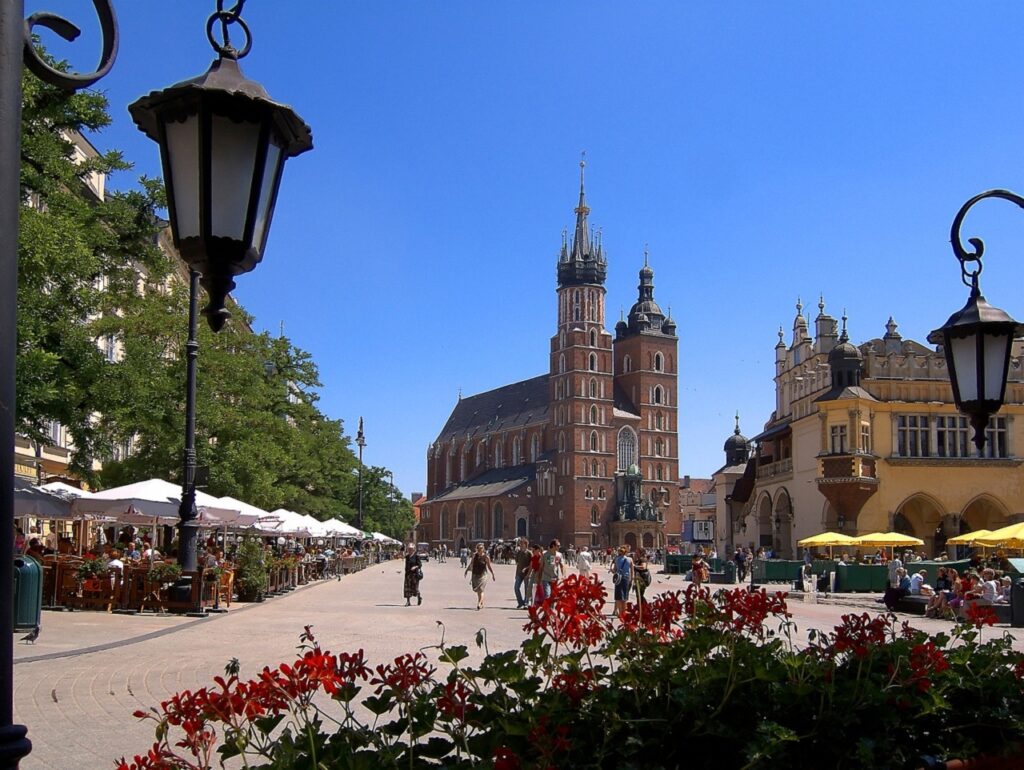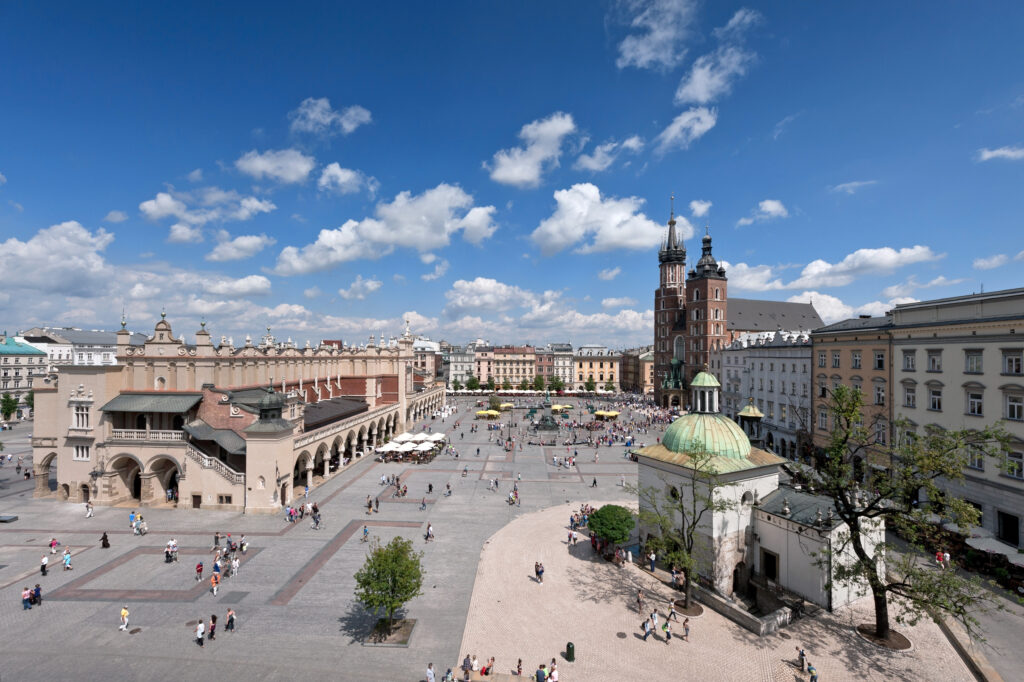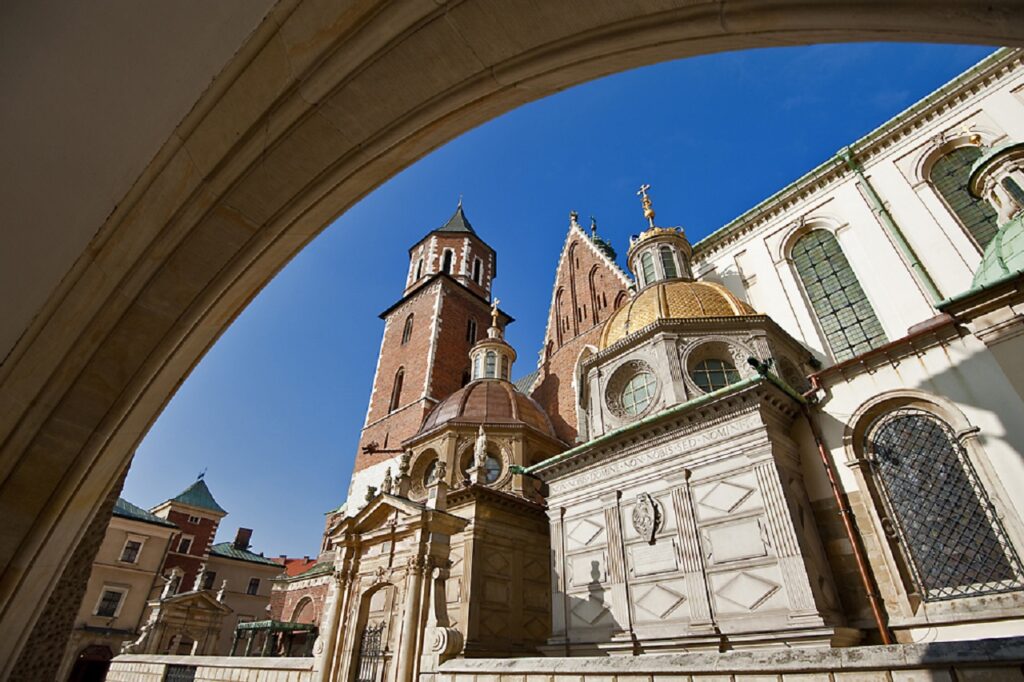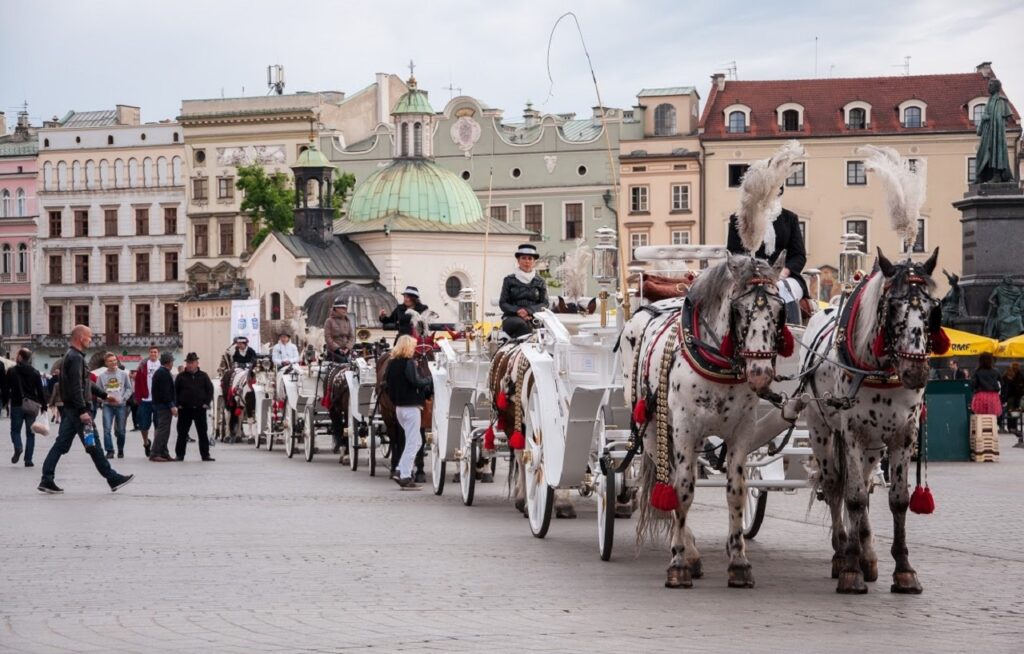Poland: Jewish Heritage
9 days / 8 nights
Discover the Jewish Heritage in Poland, known as the cultural and spiritual centre of European Jews. Learn about the history of Polish Jews: Arthur Rubinstein, Wladyslaw Szpilman, Ludwik Zamenhof, Helena Rubinstein (the creator of the cosmetics brand) and much more.

| Day 1 | > Warsaw |
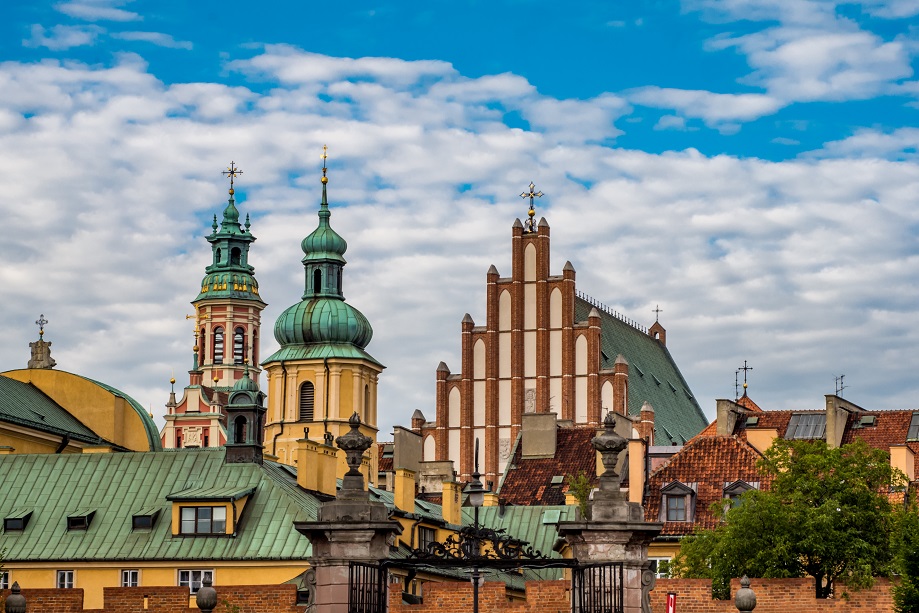

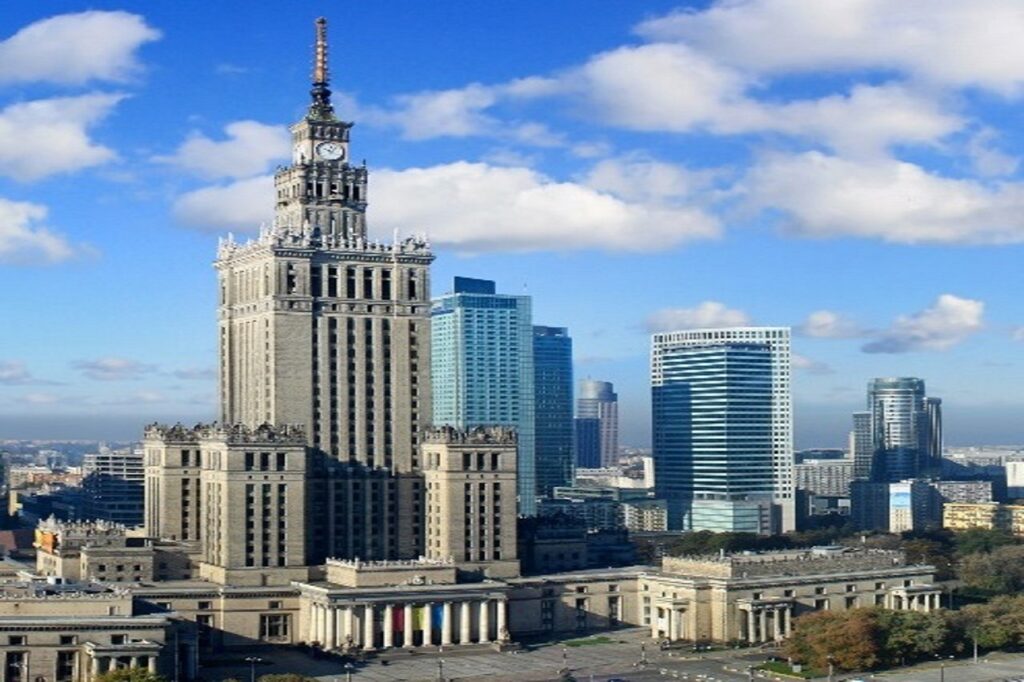
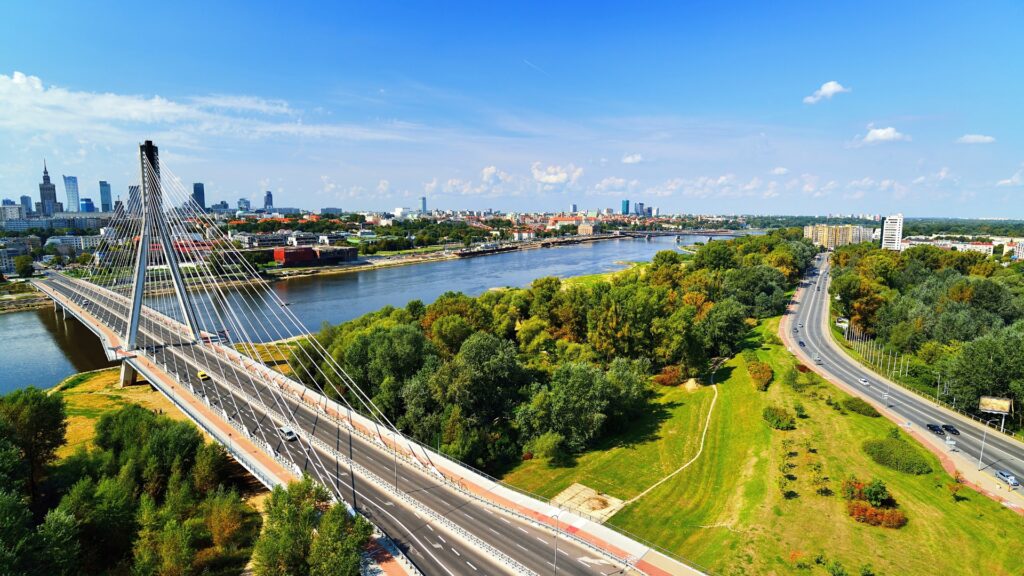
Welcome to Poland !
Arrival to Warsaw. Transfer to the hotel and check-in.
Free afternoon.
Accommodation in a centrally located hotel in Warsaw.
| Day 2 | > Warsaw |
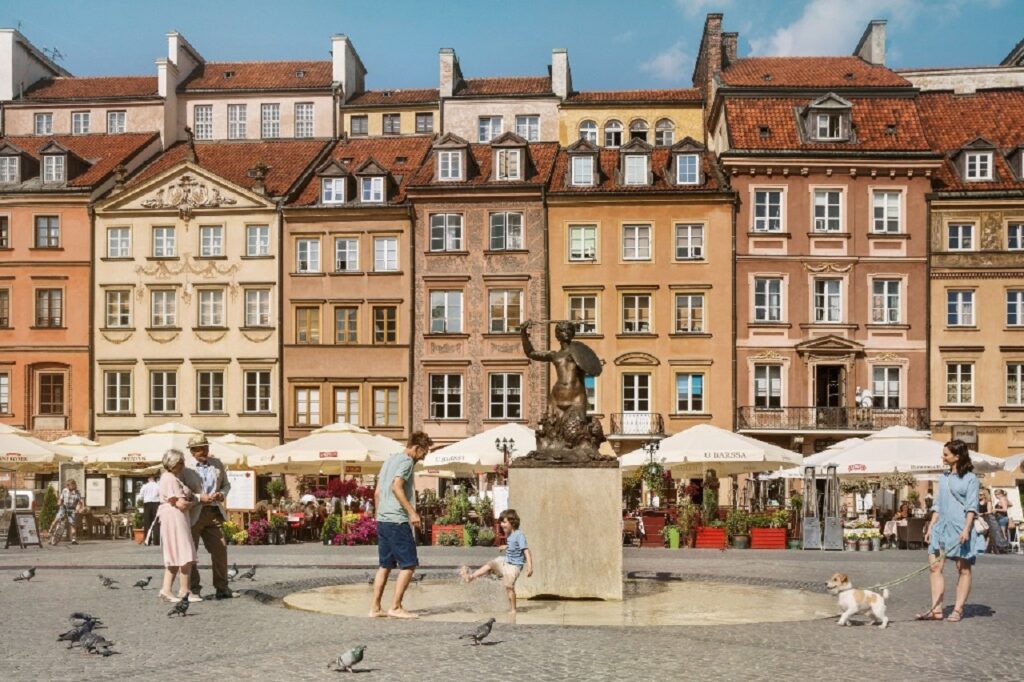
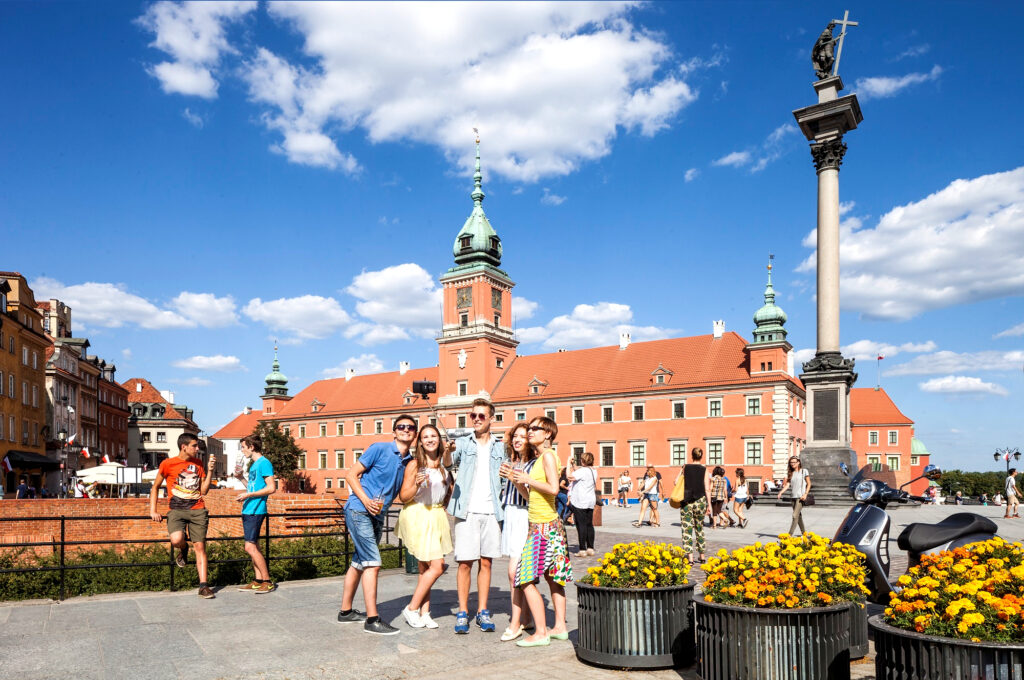



Breakfast at your hotel.
In the morning sightseeing of Warsaw. The City Tour allows us to immerse ourselves in and observe the many contrasts of the Polish capital city. The tour starts with a walk around the Lazienki Royal Park. Here we will see the famous monument dedicated to Frederic Chopin, the Palace on the Water and the Theater on the Island. We will continue with transfer to the Old Town (UNESCO) and a short walk around the Old Town: from the Royal Castle, passing next to the Saint John Cathedral, the Market Square and the barbacane to the New Town. We will continue to the Krasinski Palace, the Supreme Court bulding. Our itinerary will continue with the Grand Theatre and the National Opera, the Jablonowscy Palace, the Tomb of the Unknown Soldier and the Saxon Garden.
In the afternoon sightseeing of Warsaw Jewish part. From the 11th century till the beginning of the World War II, Poland was known as the cultural and spiritual centre of European Jews. Many of the Polish Jews gained the fame all around the world. As examples we can mention: Arthur Rubinstein, Wladyslaw Szpilman (his story is the base of the Polanski’s movie “The Pianist”). During your trip around Warsaw you will have a chance to see parts of old Jewish Warsaw, synagogue, kirkut (cemetery) and other places connected with the rich history and traditions of Polish Jews as well as the monuments commemorationg martyrdom of Jews during WWII and Jewish Uprising in the Warsaw Ghetto.
Accommodation in a centrally located hotel in Warsaw.
| Day 3 | > Warsaw > Treblinka > Warsaw |



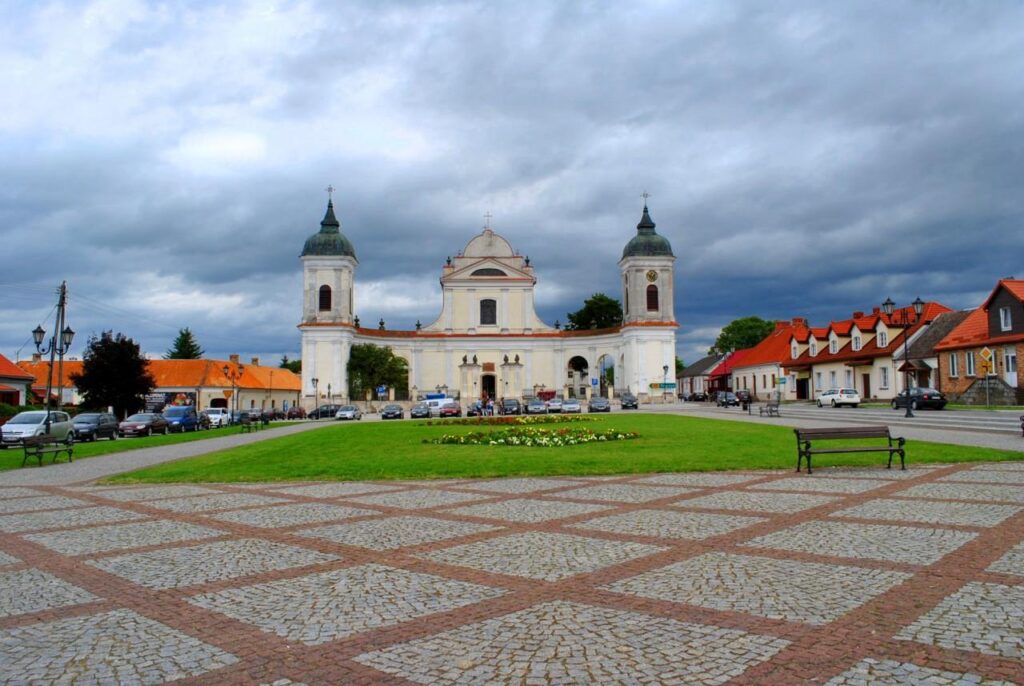
Breakfast at your hotel.
In the morning excursion to Treblinka to see the museum in the former concentration and extermination camp built by the Germans in the Polish lands during the second world war. In just 16 months when the camp in Treblinka was in operation, it is estimated that almost 800,000 people were killed in its gas chambers, which makes it the second-largest Nazi death camp apart from Auschwitz.
Continue to Tykocin, a charming city with a special atmosphere. Today it looks exactly like before World War II. One can still admire king’s castle, 18th century monastery and church, astonishing 17th century synagogue as well as wooden houses more than 100 years old. The Jewish community was formed here in 16th century and it constituted a great cultural center, becoming one of the largest Jewish communities in Poland. The synagogue of Tykocin is the second largest synagogue in Poland after that one in Krakow.
Stop in nearby Lopuchowo forest, where the Jewish community of Tykocin was murdered. It holds mass graves of 2.500 inhabitants.
Accommodation in a hotel centrally located in Warsaw.
| Day 4 | > Warsaw > Lodz > Warsaw |




Breakfast at your hotel.
1 day trip from Warsaw to Lodz.
Get to know the history of Jews of Lodz – once one of the biggest Jewish society in Poland. Stop by the Radegast station, the final point of trains transporting Jews from western European countries and provincial ghettos from Wartheland. See the Jewish cemetery, the largest Jewish necropolis in Poland. Pass the Children’s Martyrdom Monument, also called the monument of the Broken Heart, dedicated to Polish children who died or were murdered while being imprisoned in the camp in Przemysłowa Street. Take a rest in the Survivors’ Park commemorating the liquidation of the ghetto and stop under one of over 600 “memory trees” planted by those who survived the Litzmannstadt Ghetto. Visit the only remaining pre-war synagogue – Reicher synagogue which survived the times of occupation as a salt warehouse. Discover the renovated industrial complex of the Manufaktura, belonged to a Jewish businessman Israel Poznanski with an open-air plaza surrounded by large brick buildings and the longest stretch of fountains in Europe. At the end take a walk along Piotrkowska Street, a popular avenue full of shops, pubs, restaurants, and sculptures that commemorate famous inhabitants of Lodz and learn from your guide what else you can discover on your own after this tour.
Transfer back to Warsaw.
Accommodation in a hotel centrally located in Warsaw.
| Day 5 | > Warsaw > Lublin > Warsaw |



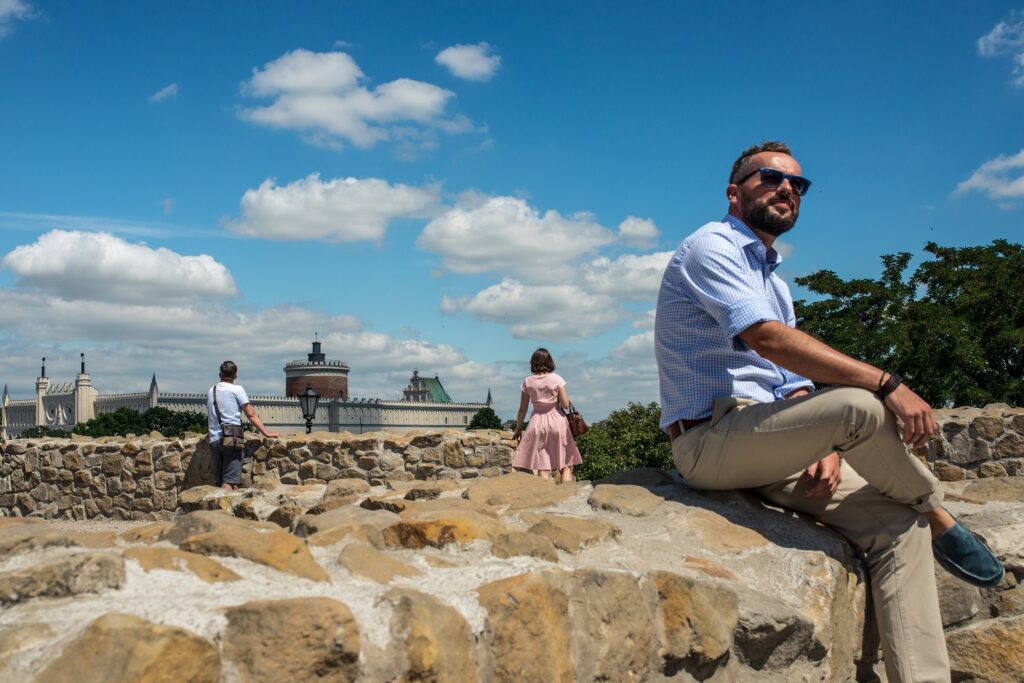
Breakfast at your hotel.
Transfer from Warsaw to Lublin.
Get to know the history of Lublin Jews. Go through a Memorial Trail of Lublin Jews, that commemorates places related to the tragic history of the Jewish community and marks the borders of the ghetto in Podzamcze and the last road of Lublin Jews to Umschlagplatz, from where about 28,000 people were transported to the death camp in Bełżec. Hear about a world that no longer exists. See the Lublin castle, the Grodzka Gate (called also the Jewish Gate), Chewra Nosim Synagogue – the only preserved pre-war Jewish temple, the Old Jewish Cemetery, and the former Academy of the Sages of Lublin – currently hotel and synagogue. Finally visit the Majdanek State Museum – the former German Nazi Concentration and Extermination Camp. Enjoy the most important places for Jewish history in Lublin and learn from your guide what else you can discover on your own after this tour.
Accommodation in a hotel centrally located in Lublin.
| Day 6 | > Lublin > Lezajsk > Krakow |




Breakfast at your hotel.
Transfer from Lublin to Lezajsk.
Lezajsk, a city located in the valley of the San River in the Podkarpackie Voivodeship. It is here that Hasidim Jews from all over the world come to pray at the tomb of Tzadik Elimelech who lived in the 18th century. They believe that Tzaddik Elimelech, on the anniversary of his death, descends from heaven and takes to God their prayers for health, well-being for children and success at work. They write them down on pieces of paper called quote and place them at the grave. Prayers are accompanied by traditional dances and singing psalms. Every year the tomb is visited by about 2.5 thousand believers.
Further transfer to Krakow.
Accommodation in a hotel centrally located in Krakow.
| Day 7 | > Krakow |
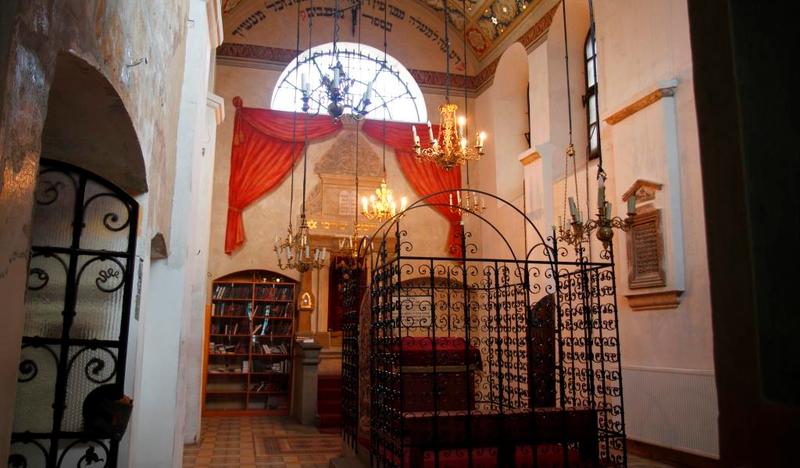
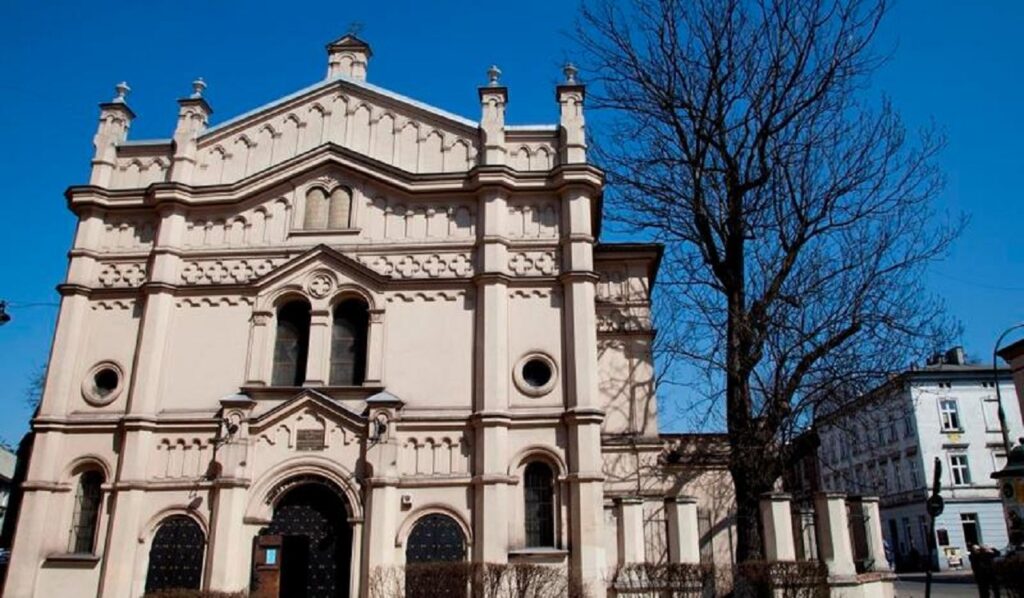


Breakfast at your hotel.
In the morning sightseeing of Krakow – the cultural capital of Poland with Old Town listed as UNESCO Heritage. During the tour you would see Barbican and defensive walls with Florian’s Gate, the Main Market Square with Sukiennice Cloth Hall, St Mary’s Church and Town Hall Tower. We would proceed to the Jagiellonian University, pass by Archbishop Palace (where John Paul II used to live) as well as St Andrew’s Church and St Peter and Paul’s Church to reach the Wawel Hill.
In the afternoon we will explore Krakow Kazimierz Jewish District known from Schindler’s List. Kazimierz used to be a separate town close to medieval city of Krakow. It was mostly populated by Jewish community. Throughout years it became Krakow’s district, but the abundance of markets, synagogues and kirkuts (Jewish cemeteries) shaped character of this part of town. As Kazimierz depicts the history of Polish Jews, some shots of Steven Spielberg Schindler’s List were captured here. During this tour you would discover this charming part of Krakow with its monuments and complexed history.
Accommodation in a hotel centrally located in Krakow.
| Day 8 | > Krakow > Auschwitz-Birkenau > Wieliczka > Krakow |
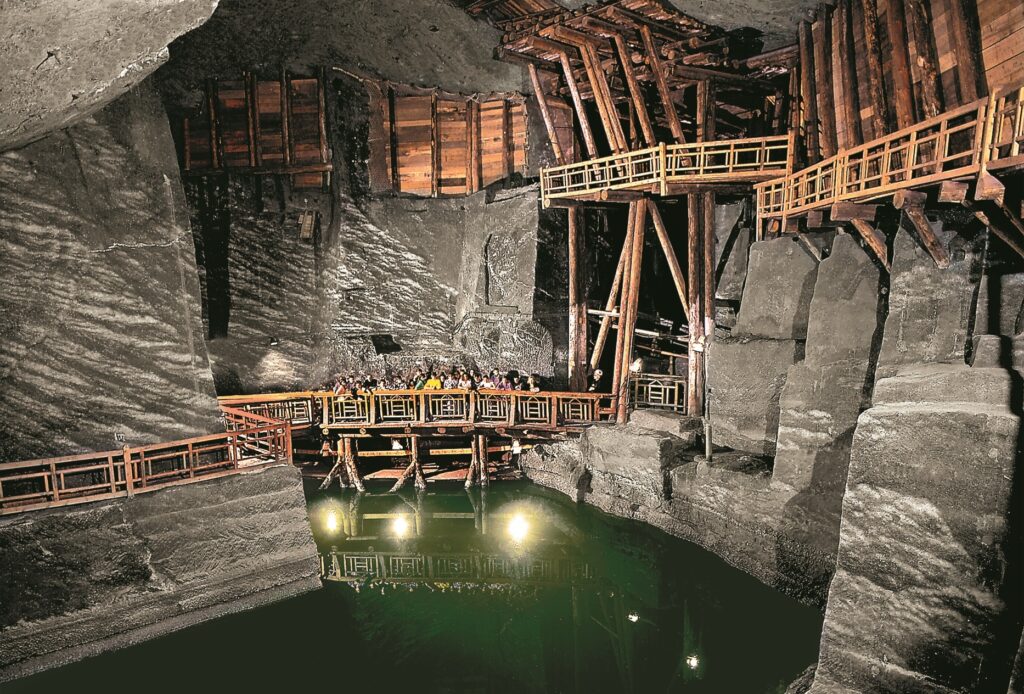
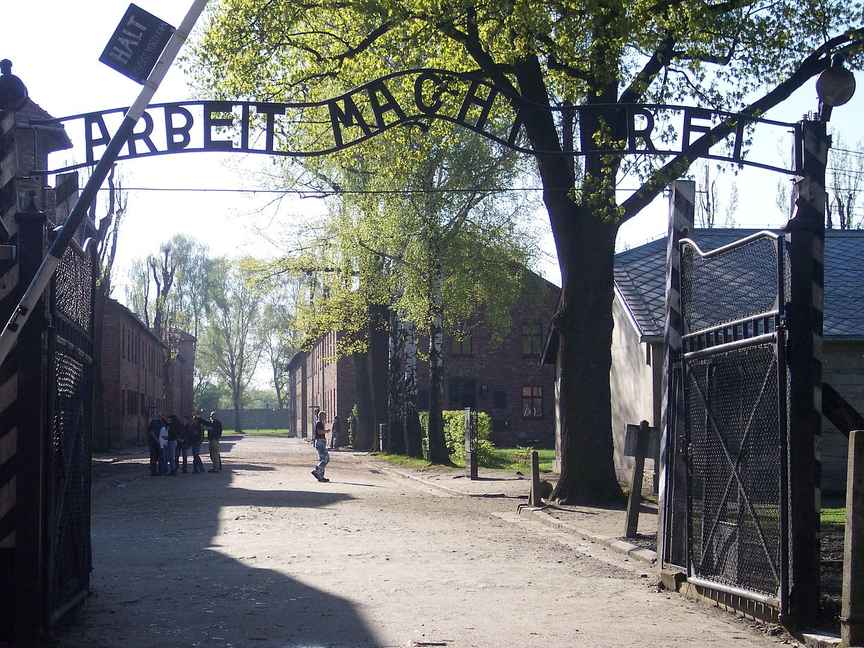
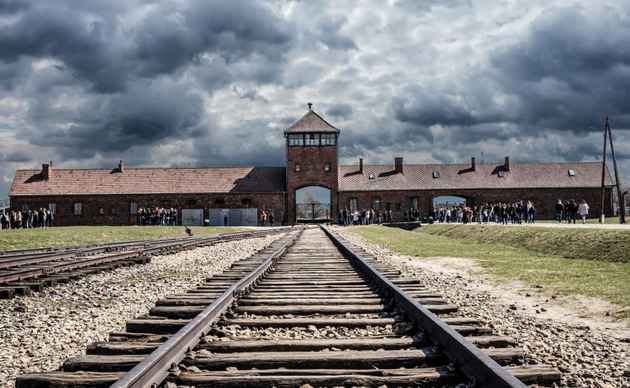
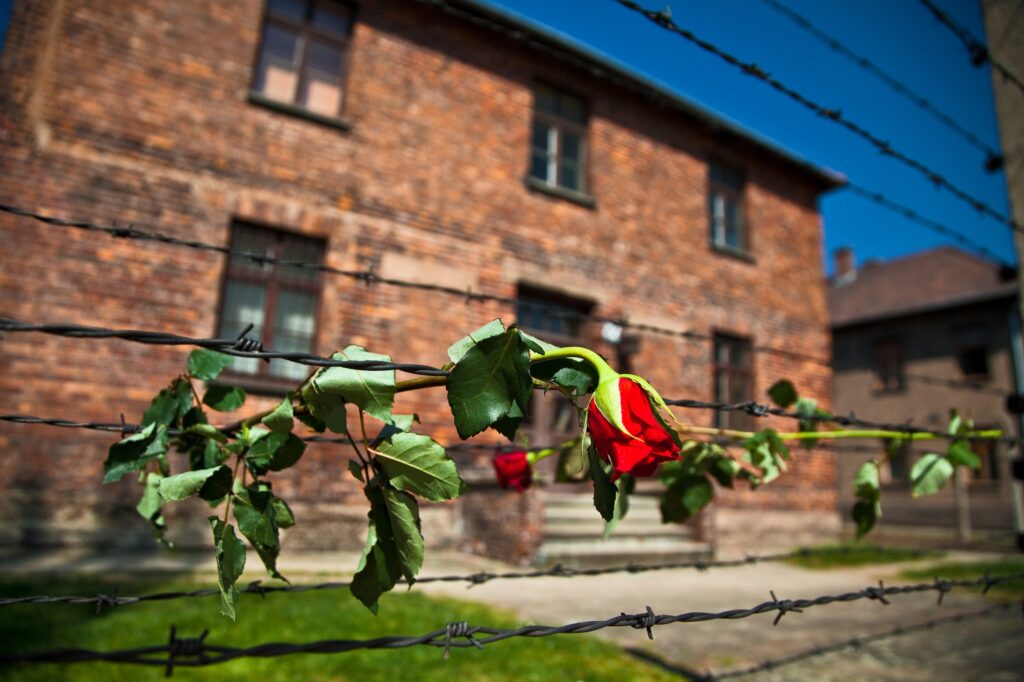
Breakfast at your hotel.
Transfer to Oswiecim (Auschwitz).
All over the world, Auschwitz has become a symbol of terror, genocide and the Holocaust. It was established by the Nazis in 1940, in the suburbs of the city of Oswiecim (Auschwitz in German) which, like other parts of Poland, was occupied by the Germans during the Second World War. A visit to concentration and extermination camp museum might help you to comprehend what incomprehensible.
Transfer from Krakow to Wieliczka the most beautiful and the oldest operating salt mine in the world (UNESCO Heritage). From over 700 years it was a source of Polish fortune and a physical fundament of culture. Today Wieliczka is the most willingly visited Polish tourist object with magnificent chapels, charming underground lakes and original tools and equipment. During this tour you could see a number of excavated chambers on 3 levels adorned with beautiful sculptures made of salt as well as a salt museum. Transfer back to Krakow.
Accommodation in a hotel centrally located in Krakow.
Contact us
If you want us to prepare a special trip for you, please write us specifying all your requirements. We will be happy to answer.
Unveiling the Treasures of Jewish Heritage in Poland
Poland’s Jewish heritage is a rich tapestry woven with the threads of history, culture, and resilience. This journey through the Jewish landmarks and traditions of Poland offers a profound insight into a community that has faced trials, yet has thrived and left an indelible mark on the country’s cultural and historical landscape. From Warsaw to Krakow, from poignant memorials to vibrant festivals, each aspect of Jewish life in Poland tells a story of survival and revival. This exploration is not just a chronicle of the past but also a celebration of a living, evolving culture that continues to influence and enrich the global Jewish community.
Journey through Time: Key Historical Sites of Jewish Poland
Poland is home to some of the most significant sites in Jewish history, offering a window into the rich tapestry of Jewish life that has been part of the country for centuries. In Warsaw, the remnants of the Jewish ghetto stand as a somber reminder of the horrors of World War II but also as a symbol of resilience. Krakow’s Jewish Quarter, known as Kazimierz, is vibrant with historical and cultural significance, hosting numerous synagogues like the Old Synagogue, one of the oldest in Poland, and bustling marketplaces that have been central to Jewish economic and social life since the Middle Ages. These sites are not just attractions; they are sacred places where visitors can connect with the past and gain insights into the Jewish spirit.
Festivals and Cultural Celebrations
The Jewish festivals and cultural celebrations in Poland are a vibrant testament to the community’s resilience and joy. The Krakow Jewish Culture Festival, which is one of the largest of its kind in the world, transforms the city into a hub of Jewish music, dance, and art, attracting artists and attendees from across the globe. This festival, along with others, showcases the rich traditions and modern interpretations of Jewish culture. Meanwhile, throughout Poland, Jewish holidays are observed with unique local customs, adding a distinctive Polish flavor to celebrations like Hanukkah and Passover. These festivals and holidays not only preserve traditional practices but also foster a sense of community and continuity among the Jewish population and the wider society.
Museums and Memorials: Guardians of Memory
Poland’s dedication to preserving Jewish heritage is prominently displayed in its museums and memorials. The POLIN Museum of the History of Polish Jews in Warsaw is a cornerstone of this preservation effort. Situated on the site of the former Warsaw Ghetto, it offers a comprehensive narrative of Jewish life in Poland from medieval times to the present, highlighting both triumphs and tragedies through state-of-the-art exhibitions. Similarly, the Auschwitz-Birkenau Memorial and Museum serves as a powerful reminder of the Holocaust’s atrocities. This site, recognized globally, draws visitors from around the world to reflect on the immense suffering and the enduring spirit of those who perished and survived.
Culinary Heritage of Polish Jews
Jewish culinary traditions in Poland are a flavorful component of the nation’s cultural mosaic. Traditional dishes such as bagels, which have origins in the Jewish communities of Poland, and borscht, a beet soup that has been adopted and adapted by Polish Jews, offer a taste of history. Modern Polish chefs are also embracing these culinary traditions, innovating and revitalizing old recipes to suit contemporary palates. This fusion of history and modernity in Jewish Polish cuisine provides a delicious insight into the evolving nature of cultural expression through food.
Stories of Resilience and Revival
The narrative of Poland’s Jewish community is marked by incredible resilience and a dynamic revival in recent years. Personal stories from within the community highlight the enduring spirit that has carried through centuries of adversity. These tales recount the experiences of survival during periods of oppression and the subsequent rebirth of Jewish life in Poland’s modern era. The resurgence is particularly evident in cities like Warsaw and Krakow, where Jewish festivals, schools, and cultural institutions have flourished, reinvigorating the community and reconnecting it with its historical roots.
Educational Initiatives and Cultural Exchange
Education plays a pivotal role in the revival and sustenance of Jewish heritage in Poland. Numerous initiatives aimed at both Jewish and non-Jewish populations help foster a deeper understanding of Jewish history, religion, and culture. Programs such as guided tours, educational workshops, and intercultural dialogues are designed to educate the youth and build bridges between diverse communities. Furthermore, international partnerships have become a crucial aspect of these educational efforts, bringing global perspectives into Polish Jewish studies and helping Polish Jewish heritage gain recognition on the world stage.
International Partnerships and Collaborations
The strength of Poland’s Jewish cultural renaissance is amplified by international partnerships and collaborations. These connections not only enrich Poland’s own cultural landscape but also link its Jewish community with global networks, promoting cultural exchange and mutual understanding. These collaborations often result in various cultural festivals, academic exchanges, and art projects that highlight the vibrancy and resilience of Jewish culture. Such partnerships underscore the universal values shared across borders and foster a sense of solidarity and shared heritage within the international Jewish community.
Summary
Exploring the treasures of Jewish heritage in Poland reveals a poignant story of endurance, revival, and celebration. From historical sites and cultural festivals to educational initiatives and international collaborations, each aspect of Jewish life in Poland is a testament to the community’s resilience and its contributions to the cultural fabric of the nation and the world. This journey through Poland’s Jewish heritage is not just about remembering the past; it is about celebrating the vibrant, living community that continues to evolve and enrich global culture.
